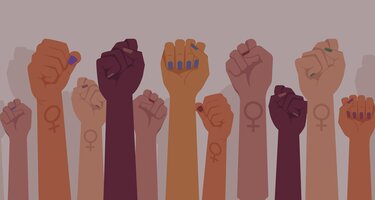Gender equity in agricultural supply chains: a human right with economic co-benefits
Gender equity is not only an ethical and social issue, but also a fundamental right, supported by numerous international legal frameworks that recognise its importance for a just and sustainable society.
Whether in the Universal Declaration of Human Rights, in the Convention on the Elimination of All Forms of Discrimination against Women (CEDAW), or in various ILO conventions that are part of the core labour standards, such as the Convention on Equal Remuneration (Convention 100), on Discrimination in Employment and Occupation (Convention 111) or on the Elimination of Violence and Harassment in the World of Work (Convention 190):
Gender equity is first and foremost a human right, and its promotion and protection are tasks for the entire global community. The CEDAW is the only internationally binding human rights treaty that specifically addresses women in the agricultural sector.
Despite this international legal framework, the reality for women and other marginalised groups in global agricultural supply chains is often different, as they are disproportionately affected by exploitation, discrimination, and vulnerability.
Gender Equity in current supply chain regulations – the status quo
German and European legislation on sustainable supply chains, in particular the Supply Chain Sustainability Obligations Act (LkSG) and the EU Regulation on Deforestation-Free Products (EUDR), lack a concrete and explicit gender perspective.
German Supply Chain Due Diligence Act (LkSG)
In Germany, the LkSG regulates corporate responsibility for human rights and the environment in global supply chains. In effect since January 2023, it applies since 1 January 2024 to companies with at least 1,000 employees.
A detailed position statement on the gender perspective in the LkSG by the Bund Deutscher Juristinnen can be found here (only in German).
EU regulation on deforestation-free products (EUDR)
With the EU regulation on deforestation-free products (EUDR), which came into force on 29 June 2023, the EU aims to minimise the EU's contribution to deforestation and forest degradation worldwide and thus reduce its contribution to climate change. The EUDR obliges companies to ensure through due diligence obligations that relevant raw materials and products placed on the market in the EU or exported from there have not contributed to deforestation after 2020. It applies to cattle (beef and leather), cocoa, coffee, oil palm, rubber, soya, and wood as well as certain derived products. The regulation will apply from the end of 2024 for larger companies and from mid-2025 for micro, small and medium-sized enterprises.
A detailed demand paper on the gender perspective in the EUDR by the NGO Fern can be found here.
Business Case for Gender

Promoting gender equity also makes sense from an economic perspective. The FAO estimates that closing the gender gap in agricultural productivity and wages can help to increase global gross domestic product and thus reduce global food insecurity. More detailed figures can be found in the FAO study The Status of Women in Agrifood Systems (2023).
This illustrates the great potential that the promotion of gender equality in the agricultural and food sector harbours, both for the economy and for global development objectives such as the Sustainable Development Goals. At a microeconomic level, greater consideration of gender aspects can lead to improved performance and sustainable development of companies. The inclusion of women and marginalised groups in agricultural supply chains can have a positive impact on productivity, quality, and production volumes, open new market opportunities and contribute to diversifying suppliers, strengthening resilience and promoting innovation and adaptability. Companies can thus advance their private-sector goals while contributing to diversity, inclusion, and gender equality.
How companies can get started
In our lunchbreak "On the way to gender equity and proper due diligence", we show the first practical steps towards implementing gender equality in global agricultural supply chains, e.g. by integrating gender-sensitive purchasing practices such as combating sexual harassment and violence in the workplace, against the background of the German Supply Chain Duties Act (LkSG). The Supply Chain Act prohibits discrimination and unequal treatment in any form. In addition, the establishment of transparent and accessible complaints mechanisms should ensure that employees are better able to defend themselves against exploitation and abuse of power. The planned European supply chain regulation (CSDDD) goes one step further: workers should then also be able to assert their rights before German and European courts.
Watch the recording and presentation of the Lunchbreak event row on Gender Equity
Lunchbreak on supply chain due diligence act part 17
